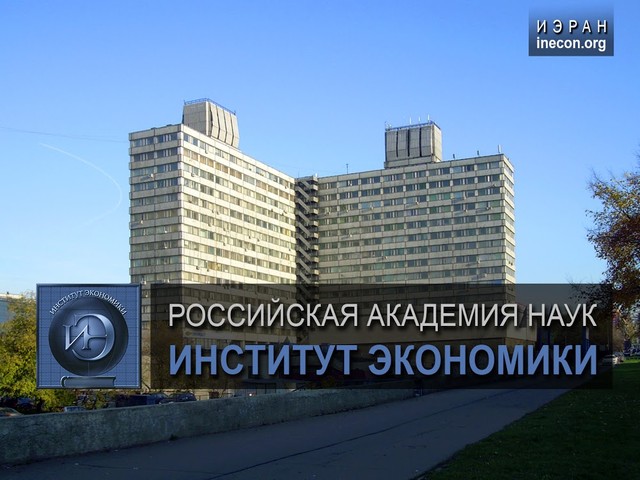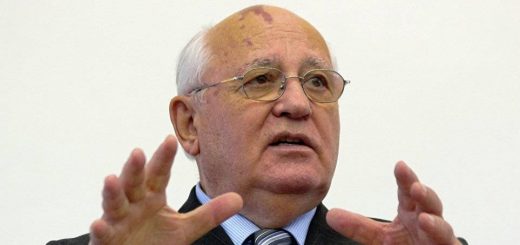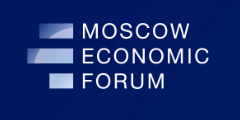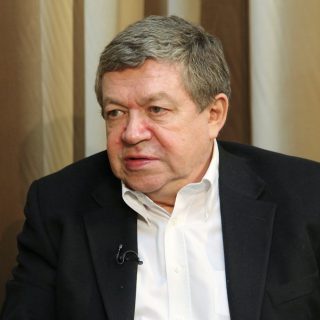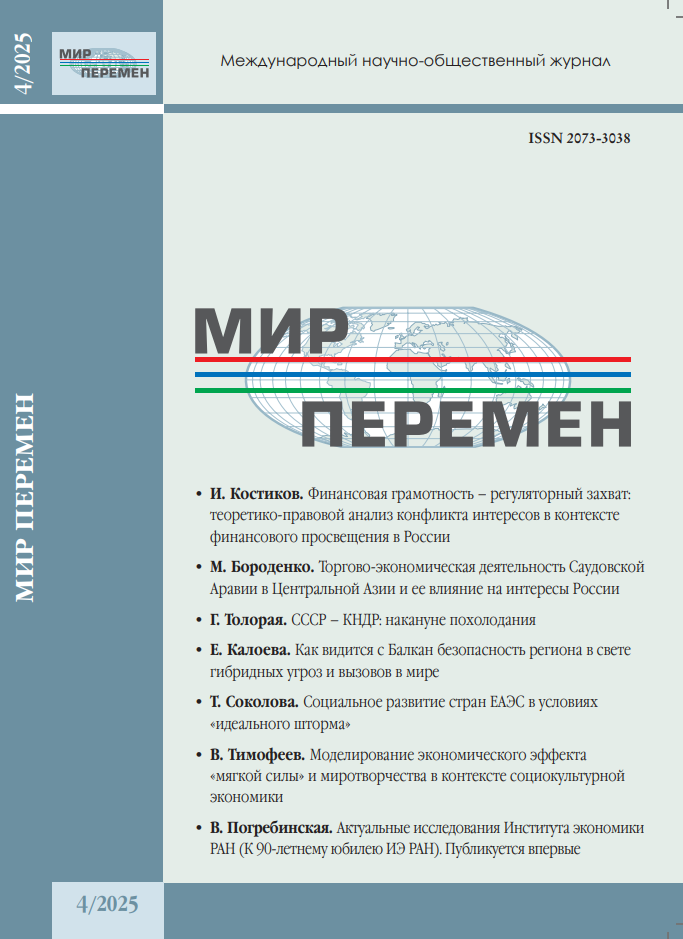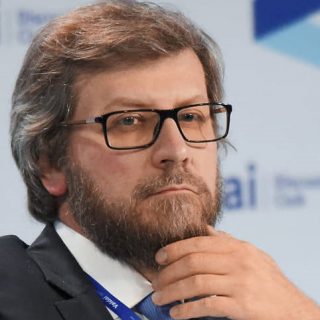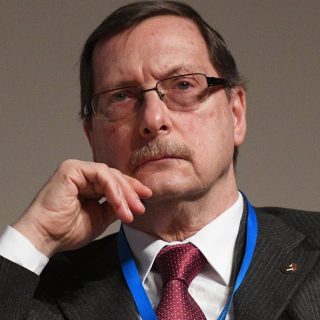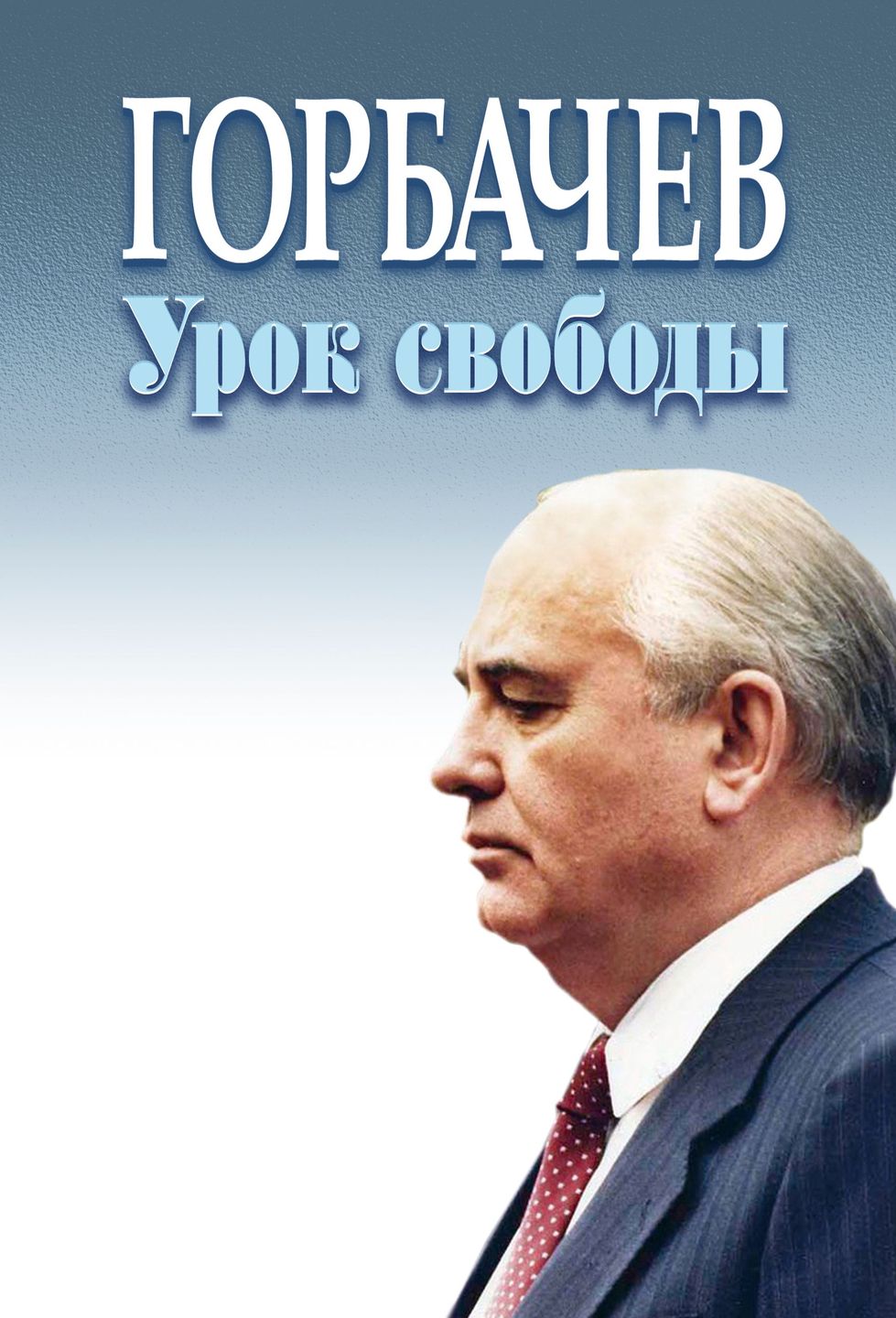Мир перемен. 2024. № 4
Мир перемен. 2024. № 4.
- содержание резюме contents summary
СОДЕРЖАНИЕ
Непонятый пророк
М. Горбачев. Наше общее будущее
М. Горбачев. Новые лидеры
Экономика
И. Николаев. Стагфляционный сценарий для российской экономики
В. Яценко, К. Роуз. Управление цепочками добавленной стоимости в условиях турбулентности: международный и российский опыт
В. Полтерович. Экономическая реформа 1992 г.: победа популизма в «войне программ» (доклад на VI Октябрьской международной научной конференции по проблемам теоретической экономики)
Л. Вардомский. Союзное государство Беларусь – Россия за четверть века: от столкновения интересов к новой модели сотрудничества
М. Бороденко. Значение Турции для экономики Грузии
Н. Зиядуллаев, У. Зиядуллаев. Новый Узбекистан как точка притяжения в Центральной Азии
З. Дадабаева. Таджикистан: адаптация экономики к новой геополитической реальности
Политика
Б. Шмелев. Влияние идеологии украинского национализма на внешнеполитическую концепцию страны
Е. Калоева. Взгляд из Сербии на российско-украинский конфликт
Социальная политика
Д. Камари. О влиянии социально ориентированной модели менеджмента на демографическую динамику
РЕЗЮМЕ
И. Николаев. Стагфляционный сценарий для российской экономики
УДК: 330.357.
EDN: BVFWWI
DOI: 10.51905/2073-3038_2024_4_19
Стагфляционный сценарий, когда одновременно наблюдается и стагнация, и высокая инфляция, становится не гипотетическим, а реальным прогнозным сценарием для экономики России. Подтверждается это замедлением темпов экономического роста, которое явно проявило себя с середины 2024 г., и высокой инфляцией. Причем, судя по фактически тщетным попыткам Банка России снизить инфляцию путем резкого повышения ключевой ставки в 2023–2024 г., проблема ускоренного роста цен останется как минимум и в 2025 м. Встает вопрос не только о реалистичности стагфляции в экономике РФ, но и как выходить из этого возможного состояния. К сожалению, такие апробированные в мировой практике пути выхода из стагфляции, как снижение налогов, приватизация и дерегулирование хозяйственной деятельности, вряд ли могут быть задействованы в российской экономике, если будут решаться соответствующие задачи. Но тогда реальным становится выход из стагфляции через экономический кризис, который к тому же, с большой долей вероятности, не будет краткосрочным. Несмотря на гипотетичность такого варианта развития событий, ответственная экономическая политика должна рассматривать и его. Обратить внимание на проблему стагфляции необходимо еще и потому, что в настоящее время термин «стагфляция» вернулся в мировой макроэкономический дискурс. Не следует и в России оставаться в стороне от обсуждения этой проблематики.
Ключевые слова: стагфляция, темпы экономического роста, инфляция, прогноз, кризис, бюджетный импульс.
Игорь Алексеевич Николаев – доктор экономических наук, главный научный сотрудник ИЭ РАН (г. Москва).
В. Яценко, К. Роуз. Управление цепочками добавленной стоимости в условиях турбулентности: международный и российский опыт
УДК: 338.2.
EDN: FXDSZX
DOI: 10.51905/2073-3038_2024_4_35
На фоне фрагментации западноцентричной модели глобализации и системы международной торговли управление цепочками производства и поставок играет критическую роль для обеспечения устойчивого экономического развития и суверенитета в краткосрочной и среднесрочной перспективе. В статье рассматриваются разные факторы и возможности управления многоэтапными процессами создания добавленной стоимости в ряде крупных экономик мира и в России, в том числе с точки зрения сформированных и принятых государственных программ, призванных повысить устойчивость таких технологических процессов. На основе анализа даются рекомендации по адаптации российской системы управления цепочками добавленной стоимости в меняющихся условиях международной логистики и торговли.
Ключевые слова: цепочки добавленной стоимости, организация промышленного производства, санкции, тарифные и нетарифные ограничения, международный опыт, цепочки поставок, цепочки производства, государственное регулирование.
Виктор Анатольевич Яценко – кандидат экономических наук, старший научный сотрудник Института экономики и организации промышленного производства СО РАН (г. Новосибирск).
Кристиан Брунович Роуз – ведущий инженер Института экономики и организации промышленного производства СО РАН (г. Новосибирск).
В. Полтерович. Экономическая реформа 1992 г.: победа популизма в «Войне программ»
УДК: 338.24.021.8.
EDN: GZMWNA
DOI: 10.51905/2073–3038_2024_4_62
Будущим исследователям – экономистам, социологам, политологам и психологам – предстоит в деталях выяснить, как могло случиться, что не была реализована ни одна из предлагавшихся в конце 1980-х – начале 1990-х программ реформ, так или иначе учитывавших необходимость постепенного перехода к рынку, а (пиррову) победу одержала примитивная концепция шоковой терапии. Это тем более удивительно, что в совместной брошюре С. Шаталина и Е. Гайдара (1989), посвященной экономической реформе, не было никаких радикальных предложений, касающихся темпов ее проведения. Здесь отметим несколько факторов, способствовавших выбору ошибочной стратегии.
Ключевые слова: советские экономисты-математики, плановая экономика, идеология, рационирование, очереди, черный рынок, переход к рынку, программы реформ, шоковая терапия
Виктор Меерович Полтерович – академик РАН, доктор экономических наук, профессор, руководитель научного направления «Математическая экономика» ЦЭМИ РАН (г. Москва).
Л. Вардомский. Союзное государство Беларусь - Россия за четверть века: От столкновения интересов к новой модели сотрудничества
УДК: 327.7; 339.97; 339.98.
EDN: LNKVXZ
DOI: 10.51905/2073-3038_2024_4_75
В центре внимания экономического взаимодействия Беларуси и России до 2021 г. находились энергетические и транзитные вопросы, а также вопросы взаимных преференций. Энергетика и транзит, будучи тесно связанными с геополитикой, выступают одновременно как факторы сближения и разобщения. Это сказывалось на деятельности Союзного государства (СГ), которая отражала противоречивую динамику интересов стран-участниц. В современных условиях в деятельности СГ резко возросло значение координации и кооперации. Делается вывод о необходимости сбалансированности интеграционного процесса по главным направлениям связанности: инфраструктура, институты, экономические проекты, социальная и информационная сфера, цифровизация, безопасность, внешняя политика. Разбалансировка ведет к замедлению или стагнации интеграционного проекта. Такая закономерность, в представлении автора, характерна для любого проекта регионализации.
Ключевые слова: Беларусь, Россия, интересы, Союзное государство, суверенитет, энергетика, транзит, геополитика, противоречия, связанность, санкции, кооперация.
Леонид Борисович Вардомский – доктор экономических наук, главный научный сотрудник ИЭ РАН (г. Москва).
М. Бороденко. Значение Турции для экономики Грузии
УДК: 339.56.
EDN: MGAJVZ
DOI: 10.51905/2073-3038_2024_4_91
В октябре 2024 г. в Грузии прошли парламентские выборы, на которых победу одержала правящая партия «Грузинская мечта», сумевшая набрать более 50% голосов. Этот факт, а также принятые ранее законы об иноагентах, запрете ЛГБТ и смены пола уже вносят негативные корректировки в отношения между западными странами и Грузией. В перспективе это может негативно сказаться на экономике республики, для которой европейский рынок является одним из ключевых. В последние десятилетия Тбилиси выстраивал свою внешнеэкономическую политику, «раскладывая яйца по разным корзинам», среди которых европейская – одна из самых крупных. В связи с этим актуальным будет рассмотреть вопрос, на кого еще из внешних игроков может рассчитывать Грузия в случае сокращения внешнеэкономических связей с ЕС. И особенно интересной в этом контексте становится Турецкая Республика.
Ключевые слова: торгово-экономическое сотрудничество, экспорт, импорт, инвестиции, Грузия, Турция.
Максим Максимович Бороденко – младший научный сотрудник Центра постсоветских исследований ИЭ РАН (г. Москва).
Н. Зиядуллаев, У. Зиядуллаев. Новый Узбекистан как точка притяжения в Центральной Азии
УДК: 339.97.
EDN: NBUGPD
DOI: 10.51905/2073-3038_2024_4_102
В статье рассматривается Узбекистан как крупнейшая страна Центральной Азии, проводится диагностика факторов экономического роста, проанализирован рост экономики по стратегии «Узбекистан-2030»: действующая институциональная архитектура реформирования и модернизации национальной экономики, тенденции изменения объема привлеченных иностранных инвестиций, внешнеторгового оборота страны. Остро поднимается проблема ускорения интеграционных процессов в ЦА, формирования партнерства с мировыми, евразийскими и региональными державами. Доказана эффективность совместного решения задач экономического сотрудничества.
Ключевые слова: Центральная Азия, Узбекистан, валовой внутренний продукт, устойчивый экономический рост, внешнеэкономическая стратегия, инвестиционные процессы, экономическое сотрудничество.
Наби Саидкаримович Зиядуллаев – заслуженный деятель науки России, член-корреспондент АН Узбекистана, главный научный сотрудник Института региональных экономических исследований (г. Москва).
Улугбек Саидкаримович Зиядуллаев – доктор экономических наук, управляющий Ташкентским филиалом «Ипак Йули» банка Узбекистана (г. Ташкент).
З. Дадабаева. Таджикистан: Адаптация экономики к новой геополитической реальности
УДК: 339, 339.5, 339.9.
EDN: RMTEWU
DOI: 10.51905/2073-3038_2024_4_123
В постсоветский период Республика Таджикистан прошла сложный путь развития экономики, отличавшийся от соседей по региону. Статья посвящена рассмотрению состояния экономики Таджикистана и адаптации к современным геополитическим условиям. Анализируются основные факторы внутристрановой обстановки и внешнего окружения, повлиявшие на выбор экономической модели республики, основных инвестиционных и торговых партнеров. Оценены перспективы стратегического развития таджикской экономики, которые во многом будут зависеть от готовности власти к реформам и структурным изменениям. Анализ экономического будущего Таджикистана, в контексте взаимодействия с Россией и Китаем, при оптимальном сочетании национальных интересов, включая весь спектр возможных согласований и компромиссов, показал, что у Таджикистана пока нет альтернативы продолжению многовекторного партнерства как с соседями по региону, так и с западными странами.
Ключевые слова: Республика Таджикистан, внешнеторговые отношения, иностранные инвестиции, внешнеэкономические связи, Россия, геополитическая напряженность, адаптация экономики.
Зарина Абдурахмановна Дадабаева – доктор политических наук, ведущий научный сотрудник ИЭ РАН (г. Москва).
Б. Шмелев. Влияние идеологии украинского национализма на внешнеполитическую концепцию страны
УДК: 339.
EDN: SUNPXQ
DOI: 10.51905/2073-3038_2024_4_143
В статье рассматривается влияние идеологии украинского национализма на формирование внешнеполитической концепции и внешнеполитического курса Украины. Они оформляются под влиянием геополитических и геоэкономических интересов страны. Но немаловажную роль играет и идеологический фактор, определяющий место Украины в мировом историческом и политических процессах, ее интересы в отношениях с соседними государствами. Автор показывает, что внешнеполитическая концепция современной Украины воспроизводит многие идеи и положения идеологов украинского национализма первой половины ХХ в. Они не смогли создать целостной концепции строительства национального государства. Их взгляды отличались агрессивностью в отношении Советского Союза, содержали сильный налет местечковости и провинциализма. В статье показывается преемственность многих положений современной внешнеполитической концепции страны со взглядами украинских идеологов национализма периода борьбы за независимость Украины. Автор выдвигает гипотезу, в соответствии с которой нынешняя политическая элита Украины в разработке внешнеполитической концепции страны опирается на ключевые положения, ранее сформулированные идеологами украинского национализма, слегка осовременив их.
Ключевые слова: нация, национализм, национальная идея, внешнеполитическая концепция, государство, идеология, ЕС, НАТО, Украина, Россия.
Борис Александрович Шмелев – доктор исторических наук, главный научный сотрудник ИЭ РАН (г. Москва).
Е. Калоева. Взгляд из Сербии на российско-украинский конфликт
УДК: 327.5.
EDN: VILIAC
DOI: 10.51905/2073-3038_2024_4_159
Работа представляет собой реферат книги профессора социологии философского факультета в Белграде, руководителя отделения общественных наук Андричева института, автора двадцати книг С. Антонича. В статье показано, насколько безгранична магическая сила притяжения к России некоторых представителей сербской элиты и значительной части сербского общества. Книга С. Антонича представляет особый интерес с той точки зрения, что наглядно демонстрирует, как история превращается в политику.
Ключевые слова: Европа, Россия, Украина, конфликт, легитимность.
Елена Борисовна Калоева – кандидат исторических наук, член редколлегии журнала «Россия и современный мир» (г. Москва).
Д. Камари. О влиянии социально ориентированной модели менеджмента на демографическую динамику
УДК: 314.17.
EDN: VXJRPV
DOI: 10.51905/2073-3038_2024_4_175
Отрицательный естественный прирост – явление не новое для России. Эта тенденция берет начало с рыночных реформ в стране. Меры по борьбе с демографическим кризисом путем предоставления материальной помощи в виде материнского капитала и различных пособий оказываются недостаточными из-за инфляционного кризиса в стране и стагнации реальных доходов населения. В результате возникает необходимость общего постепенного перехода работодателей с рыночной на социально ориентированную модель управления организацией, в которой будут учитываться меры по поддержке семей и потенциальных родителей.
Ключевые слова: демографический кризис, зарплата, социально ориентированная модель, социальные лифты, меры поддержки населения.
Даниэль Михайлович Камари – эксперт Вольного экономического общества России (г. Москва).
Contents
The Misunderstood Prophet
(From the Speeches of M. Gorbachev)
M. Gorbachev. Our Common Future
M. Gorbachev. New Leaders
Economy
I. Nikolaev. Stagflation Scenario for the Russian Economy
V. Yatsenko, K. Rose. Value Chains Management in the Context of Turbulence: the International and Russian Experience
V. Polterovich. Economic Reform of 1992: The Victory of Populism in the «War of Programs» (Report at the VI October International Scientific Conference on Problems of Theoretical Economics)
L. Vardomskiy. The Belarus-Russia Union State in a Quarter of a Century: from a Clash of Interests to a New Model of Cooperation
M. Borodenko. The Importance of Turkey for the Economy of Georgia
N. Ziyadullaev, U. Ziyadullaev. New Uzbekistan as a Point of Attraction in Central Asia
Z. Dadabaeva. Tajikistan: Adaptation of the Economy to the New Geopolitical Reality
Politics
B. Shmelev. The Influence of the Ideology of Ukrainian Nationalism on the Country’s Foreign Policy Concept
E. Kaloeva. A View from Serbia on the Russian-Ukrainian conflict
Social policy
D. Kamari. On the Impact of a Socially Oriented Management Model on Demographic Dynamics
Summary
I. Nikolaev. Stagflation Scenario for the Russian Economy
Annotation. The scenario of stagflation, when both economic stagnation and high inflation are observed at the same time, is becoming not a hypothetical, but a real forecast scenario for the Russian economy. This is confirmed by the slowdown in economic growth, which has clearly displayed itself since mid-2024, and high inflation. Moreover, judging by the Bank of Russia’s virtually futile attempts to reduce inflation by sharply raising the key rate in 2023–2024, the problem of accelerated price growth will remain, at least in the year 2025. The question arises not only about the realism of stagflation in the Russian economy, but also about how to get out of this possible state. Unfortunately, such proven ways out of stagflation in world practice as tax cuts, privatization and deregulation of economic activity are unlikely to be used in the Russian economy if the relevant tasks are solved. But then it becomes possible to get out of stagflation through an economic crisis, which, moreover, with a high degree of probability, will not be short-term. Despite the hypothetical nature of such an evolution of events, responsible economic policy should also consider it. It is necessary as well to pay attention to the problem of stagflation because the term «stagflation» has now returned to the global macroeconomic discourse. One should not stay away from discussing this issue in Russia either.
Keywords: stagflation, economic growth rates, inflation, forecast, crisis, budget impulse.
Igor A. Nikolaev – Doctor of Economic Sciences, Chief Researcher of the Institute of Economics of the Russian Academy of Sciences (Moscow).
V. Yatsenko, K. Rose. Value Chains Management in the Context of Global Turbulence: the International and Russian Experience
Annotation. Against the backdrop of fragmentation of the Westerncentric model of globalization and the international trade system, production and supply chain management plays a critical role in ensuring sustainable economic development and sovereignty in the short and medium term. Therefore, this article11 examines various factors and opportunities for managing multi-stage processes of creating added value in a number of large economies of the world and in Russia, including, from the point of view of formed and adopted state programs, which are designed to increase the sustainability of such technological processes. Based on the analysis, recommendations are given for adapting the Russian system of value chain management in the changing conditions of international logistics and trade.
Keywords: value chains, organization of industrial engineering, sanctions, tariffs and non-tariff barriers, international experience, supply chains, production chains, government regulation.
Viktor A. Yatsenko – Candidate of Economic Sciences, Senior Researcher at the Institute of Economics and Industrial Engineering of the Siberian Branch of the Russian Academy of Sciences (Novosibirsk).
Kristian B. Rose – Leading Engineer at the Institute of Economics and Industrial Engineering of the Siberian Branch of the Russian Academy of Sciences (Novosibirsk).
V. Polterovich. Economic Reform of 1992: The Victory of Populism in the «War of Programs» (Report at the VI October International Scientific Conference on Problems of Theoretical Economics)
Annotation. Future researchers – economists, sociologists, political scientists and psychologists – will have to find out in detail how it could happen that not a single reform program, proposed in the late 1980s – early 1990s, which in one way or another took into consideration the necessity for a gradual transition to the market, was implemented, and the primitive concept of shock therapy won (a Pyrrhic) victory. This is all the more surprising since the joint brochure of S. Shatalin and E. Gaidar (1989), devoted to economic reform, did not contain any radical proposals, regarding the pace of its implementation. Here we shall note several factors that contributed to the choice of the flawed strategy.
Keywords: Soviet economists-mathematicians, planned economy, ideology, rationing, queues, black market, transition to the market, reform programs, shock therapy.
Victor M. Polterovich – Academician of the Russian Academy of Sciences (the RAS), Doctor of Economic Sciences, Professor, Head of Research «Mathematical Economics», Central Economics and Mathematics Institute of the RAS, Deputy Director, Moscow School of Economics of the Moscow State University (the MSU) (Moscow).
L. Vardomskiy. The Belarus-Russia Union State in a Quarter of a Century: from a Clash of Interests to a New Model of Cooperation
Annotation. The focus of economic cooperation between Belarus and Russia until the year 2021 was on energy and transit issues, as well as on issues of mutual preferences. Energy and transit, being closely related to geopolitics, act simultaneously as factors of rapprochement and disunity. This had an effect on the activities of the of the Union State of Belarus and Russia (USBR), which reflected the contradictory dynamics of the interests of the participating countries. In contemporary conditions, the importance of coordination and cooperation in the activities of the USBR has sharply increased. The conclusion is drawn about the need to balance the integration process in the main areas of connectivity: infrastructure, institutions, economic projects, social and information sphere, digitalization, security, foreign policy. An imbalance leads to a slowdown or stagnation of the project of integration. This pattern, in the author’s view, is characteristic of any regionalization project.
Keywords: Belarus, Russia, interests, Union State, sovereignty, energy, transit, geopolitics, contradictions, connectivity, sanctions, cooperation.
Leonid B. Vardomskiy – Institute of Economics of the Russian Academy of Sciences, Doctor of Economic Sciences, Chief Researcher (Moscow).
M. Borodenko. The Importance of Turkey for the Economy of Georgia
Annotation. In October of 2024, parliamentary elections were held in Georgia, in which the ruling Georgian Dream party won, managing to collect more than 50% of the votes. This fact, as well as previously adopted laws on foreign agents, the ban on LGBT and gender reassignment, are already making negative adjustments to relations between Western countries and Georgia. In the long run, this may have a negative impact on the economy of the republic, for which the European market is one of the key ones. In recent decades, Tbilisi had built its foreign economic policy by «putting its eggs in different baskets», among which the European one is one of the largest. In this regard, it will be relevant to consider the question of which other external players Georgia can count on in the event of a reduction in foreign economic relations with the EU. And the Republic of Turkey is becoming especially interesting in this context.
Keywords: trade and economic cooperation, export, import, investment, Georgia, Turkey.
Maxim M. Borodenko – Junior Researcher at the Center for Post-Soviet Studies of the Institute of Economics of the Russian Academy of Sciences (Moscow).
N. Ziyadullaev, U. Ziyadullaev. New Uzbekistan as a Point of Attraction in Central Asia
Annotation. The article considers Uzbekistan as the largest country in Central Asia, diagnoses the factors of economic growth, identifies the main prerequisites for ensuring future macroeconomic indicators: reducing inflation, increasing added value, changing the sectoral structure of GDP. The economic growth, according to the Strategy «Uzbekistan-2030», is analyzed: the current institutional architecture of reforming and modernizing the national economy, trends in changing the volume of attracted foreign investment, the country’s foreign trade turnover. The problem of accelerating integration processes in Central Asia, forming partnerships with Central Asian countries, Eurasian states arises, the effectiveness of jointly solving economic cooperation problems has been proven.
Keywords: Central Asia, Uzbekistan, gross domestic product, sustainable economic growth, foreign economic strategy, investment processes, economic cooperation.
Nabi S. Ziyadullaev – an Honored Scientist of Russia, Corresponding Member of the Academy of Sciences of Uzbekistan and Chief Researcher at the Institute for Regional Economic Research (Moscow).
Ulugbek S. Ziyadullaev – Doctor of Economic Sciences and Manager of the Tashkent Branch of Ipak Yuli Bank of Uzbekistan (Tashkent).
Z. Dadabaeva. Tajikistan: Adaptation of the Economy to New Geopolitical Conditions
Annotation. In the post-Soviet period, the Republic of Tajikistan went through a difficult path of economic development, which differed from its neighbors in the region. The article is devoted to the consideration of the state of the economy of Tajikistan and its adaptation to contemporary geopolitical conditions. The article analyzes the main factors of the domestic situation and external environment that influenced the choice of the economic model of the republic, the main investment and trade partners. The prospects for the strategic development of the Tajik economy are assessed, which will largely depend on the readiness of the authorities for reforms and structural changes. An analysis of the economic future of Tajikistan, in the context of interaction with Russia and China with an optimal combination of national interests, including the entire range of possible agreements and compromises, showed that Tajikistan has no alternative to continuing a multi-vector partnership with both its neighbors in the region and Western countries.
Keywords: Republic of Tajikistan, foreign trade relations, foreign investment, foreign economic relations, Russia, geopolitical tension, adaptation of the economy
Zarina A. Dadabaeva – Doctor of Political Sciences ,a Leading Researcher at the Institute of Economics of the Russian Academy of Sciences (Moscow).
B. Shmelev. The Influence of the Ideology of Ukrainian Nationalism on the Formation of the Foreign Policy Concept of Ukraine
Annotation. The article examines the impact of the ideology of Ukrainian nationalism on the formation of the foreign policy concept and the foreign policy course of Ukraine. They are formed under the influence of the geopolitical and geo-economic interests of the country. But an important role is also played by the ideological factor, that determines the country’s place in the world historical and political processes, its interests in relations with neighboring states. The author shows that the foreign policy concept of contemporary Ukraine reproduces many of the ideas and provisions of the ideologists of Ukrainian nationalism in the first half of the 20th century. They were unable to create a holistic concept of building a national state. Their views were distinguished by aggressiveness towards the Soviet Union and the Russian people, and contained a strong touch of parochialism and provincialism. The article shows the continuity of many provisions of the contemporary Ukrainian foreign policy concept with the views of Ukrainian ideologists of nationalism during the struggle for the independence of Ukraine. The author puts forward a hypothesis, in accordance with which the current political elite of Ukraine, in developing the country’s foreign policy concept, rely on key provisions, previously formulated by the ideologists of Ukrainian nationalism, slightly modernizing them.
Keywords: nation, nationalism, national idea, foreign policy concept, state, ideology, EU, NATO, Ukraine, Russia.
Boris A. Shmelev – Doctor of Historical Sciences, Chief Researcher at the Institute of Economics of the Russian Academy of Sciences (Moscow).
E. Kaloeva. A View from Serbia on the Russian-Ukrainian Conflict
Annotation. This work is a review of the abstract of the book by Professor of Sociology at the Faculty of Philosophy in Belgrade and Head of the Department of Social Sciences at the Andrić Institute, author of 20 books, S. Antonić. It shows how limitless is the magical power of attraction to Russia of some representatives of the Serbian elite and a significant part of Serbian society. S. Antonić’s book is of particular interest from the point of view that it vividly demonstrates how history turns into politics.
Keywords: Europe, Russia, Ukraine, conflict, legitimacy.
Elena B. Kaloeva – Candidate of Historical Sciences, PhD. in History, Member of the Editorial Board of the Journal «Russia and the Contemporary World» (Moscow).
D. Kamari. On the Impact of a Sociality Oriented Management Model on Demographic Growth
Annotation. Negative natural growth is not a new phenomenon for Russia. This trend originated from market reforms in the country. Measures to combat the demographic crisis by providing material assistance in the form of maternity capital and various benefits are insufficient, due to the inflationary crisis in the country and the stagnation of real disposable incomes of the population. As a result, there is a need for a general gradual transition of employers from a market to a socially-oriented model of managing an organization, which will take into consideration measures to support families and potential parents.
Keywords: demographic crisis, salary, socially oriented model, social elevators, measures to support the population.
Daniel M. Kamari – Expert of The Free Economic Society of Russia (Moscow).

